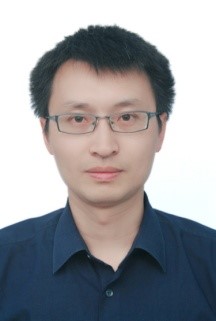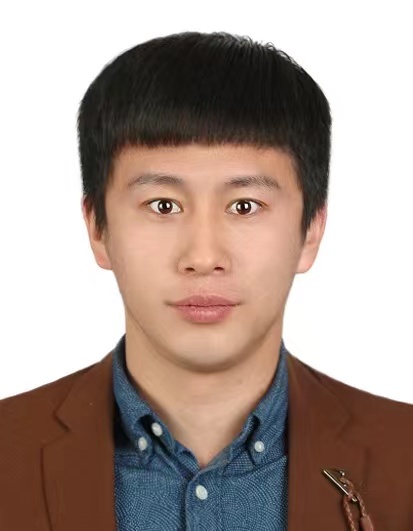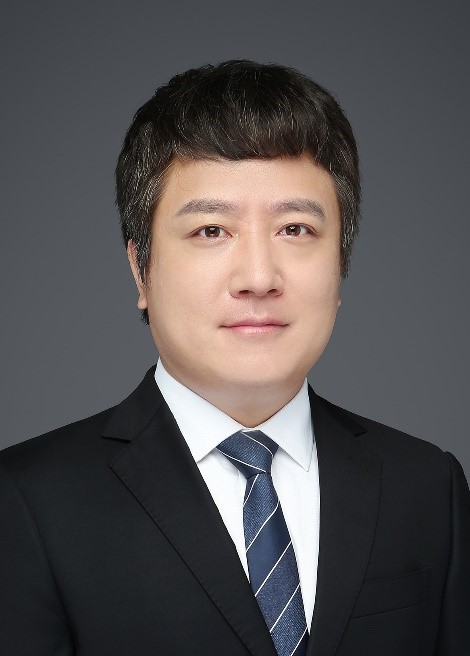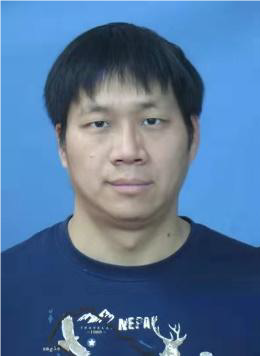

Title: Model-based estimation approach for state of charge of lithium-ion battery
Panelist: Lin He (贺林)
Abstract: The state of charge is a key parameter of lithium-ion battery, whose estimation approaches may be divided into classical control and reinforce learning algorithm. For an accurate SOC of lithium-ion battery by classical control algorithm, we have met with two problems, i.e. the accuracy of model, and the practicability of algorithm. Respect to the practicability of algorithm, it is important that the algorithm should not only match with the characteristics of state of charge, but also be applied into practical engineering. As for the accuracy of model, there are lots of battery models proposed in some literatures. An accurate battery model, which can describe the dynamics characteristics of lithium-ion battery, is one of the most important factors affecting the final estimation result. In this lecture, we will discuss how to respond to the challenge of accurate estimation for the state of charge of lithium-ion battery.
 Personal Profile:He Lin was born in Nanchong, China, in 1977. He received the Ph.D. degree in automotive engineering from Tongji University, Shanghai, China, in 2010. After that, he entered into the State Key Laboratory of Automotive Safety and Energy, Tsinghua University, Beijing, China, as an assistant research fellow. He did some researches of advanced engine control technology for Toyota Motor Corporation from Apr. 2010 to Mar. 2011 in Sophia University, Tokyo, Japan. From Jan. 2012 to May 2016, He was a product engineering manager of Foton Motor Group to develop new energy vehicle. In the meantime, As a project chief engineer, He developed first fuel cell truck of China and first full platform of battery electric truck for Foton. Now, He is a professor of Hefei University of Technology. He has written two books of new energy vehicle, i.e. Electric Vehicle Design, Power Battery. His research interests mainly include vehicle dynamics & control, and automotive powertrain & control, lithium-ion battery management, electric motor control, steer-by-wire, brake-by-wire, intelligent vehicle. Email: helin@hfut.edu.cn.
Personal Profile:He Lin was born in Nanchong, China, in 1977. He received the Ph.D. degree in automotive engineering from Tongji University, Shanghai, China, in 2010. After that, he entered into the State Key Laboratory of Automotive Safety and Energy, Tsinghua University, Beijing, China, as an assistant research fellow. He did some researches of advanced engine control technology for Toyota Motor Corporation from Apr. 2010 to Mar. 2011 in Sophia University, Tokyo, Japan. From Jan. 2012 to May 2016, He was a product engineering manager of Foton Motor Group to develop new energy vehicle. In the meantime, As a project chief engineer, He developed first fuel cell truck of China and first full platform of battery electric truck for Foton. Now, He is a professor of Hefei University of Technology. He has written two books of new energy vehicle, i.e. Electric Vehicle Design, Power Battery. His research interests mainly include vehicle dynamics & control, and automotive powertrain & control, lithium-ion battery management, electric motor control, steer-by-wire, brake-by-wire, intelligent vehicle. Email: helin@hfut.edu.cn.
****************************************************************************************************************************************************************
Title: Deep Learning based Object Detection and Semantic Segmentation for Autonomous Driving
Panelist: Ying Li (李颖)
Abstract: Accurate environmental perception is the key for reliable navigation, accurate decision-making, and safe driving of autonomous vehicles in complex environments. This task needs to extract reliable and accurate environmental information using the data acquired by on-board sensors. In recent years, with the breakthroughs of computing platforms and the publication of high-quality labeled perception datasets, deep learning has achieved a series of remarkable results in environment perception for autonomous driving. How to extract accurate information using deep learning algorithms in different driving scenarios plays an important role in decision-making and planning. Therefore, this report focuses on the research of deep learning based object detection and semantic segmentation in different driving scenarios.
 Personal Profile:Ying Li received the Ph.D. degree from the University of Waterloo, Canada, in 2021. She is currently an Assistant Professor with the School of Mechanical Engineering, Beijing Institute of Technology, China. Her current research focuses on autonomous driving, environmental perception, computer vision, mobile laser scanning, geometric and semantic modeling, and high definition mapping. She has published more than 20 SCI/EI papers. She is also the principal investigator of 4 grants, including the National Science Fund for Youth and the International Postdoctoral Exchange Fellowship Program (Talent-Introduction Program).
Personal Profile:Ying Li received the Ph.D. degree from the University of Waterloo, Canada, in 2021. She is currently an Assistant Professor with the School of Mechanical Engineering, Beijing Institute of Technology, China. Her current research focuses on autonomous driving, environmental perception, computer vision, mobile laser scanning, geometric and semantic modeling, and high definition mapping. She has published more than 20 SCI/EI papers. She is also the principal investigator of 4 grants, including the National Science Fund for Youth and the International Postdoctoral Exchange Fellowship Program (Talent-Introduction Program).
****************************************************************************************************************************************************************
Title: Extended State Observer based Control and Filter Design with Applications to Vehicle Control Systems
Panelist: Wenchao Xue (薛文超)
Abstract: Extended state observer (ESO) has been widely used to deal with various control and filtering problems of uncertain systems. In the frame of ESO, the “total disturbance” in systems can be timely estimated from the input-data and output-data of systems. This talk will discuss the recent progress in design and theory of ESO as well as ESO based control. Firstly, the ESO design method for general uncertain systems will be presented. The estimation error of ESO will be rigorously discussed. Next, I will focus on the ESO based filters for estimating both states and uncertain dynamics, especially for the stochastic systems. Finally, some recent applications to vehicle control systems will be demonstrated.
 Personal Profile:Wenchao Xue received Ph.D. degree in control theory from the Academy of Mathematics and Systems Science (AMSS), Chinese Academy of Sciences (CAS) in 2012. He is now an Associate Professor of AMSS, CAS. His research interests include theory and application of active disturbance rejection control, nonlinear uncertain system control and nonlinear uncertain systems filtering. Dr. Xue emphasizes on the control theory research to solve the real world problems. He has published several papers on Automatica and IEEE transactions. Currently, Dr. Xue is an associate editor of the IFAC Journal of Control Engineering Practice and the Journal of Systems Sciences and Mathematic. He has chaired several NSFC projects including Outstanding Youth Fund. He is the member of Chinese Simulation Federation, and the member of TCCT, Chinese Association of Automation. He is a recipient of server conference best/outstanding paper awards including Best Paper Award of IEEE DDCLS 2018 and SCIS-CCC Poster Paper Award of CCC 2019.
Personal Profile:Wenchao Xue received Ph.D. degree in control theory from the Academy of Mathematics and Systems Science (AMSS), Chinese Academy of Sciences (CAS) in 2012. He is now an Associate Professor of AMSS, CAS. His research interests include theory and application of active disturbance rejection control, nonlinear uncertain system control and nonlinear uncertain systems filtering. Dr. Xue emphasizes on the control theory research to solve the real world problems. He has published several papers on Automatica and IEEE transactions. Currently, Dr. Xue is an associate editor of the IFAC Journal of Control Engineering Practice and the Journal of Systems Sciences and Mathematic. He has chaired several NSFC projects including Outstanding Youth Fund. He is the member of Chinese Simulation Federation, and the member of TCCT, Chinese Association of Automation. He is a recipient of server conference best/outstanding paper awards including Best Paper Award of IEEE DDCLS 2018 and SCIS-CCC Poster Paper Award of CCC 2019.
****************************************************************************************************************************************************************
Title: Bridging the Theory to Practice: A Review of the IFAC ECOSM Benchmark Problem
Panelist: Fuguo Xu (徐福国)
Abstract: In the 6th IFAC Conference on Engine and Powertrain Control, Simulation and Modeling (ECOSM 2021), Tokyo 2021, we collaborated with scholars from Sweden, Spain, China and Japan and engineers from Toyota Motor Corporation, Japan to propose a benchmark problem for the challengers aiming to energy efficiency control of connected and intelligent hybrid electric vehicles (HEVs). The purpose of this benchmark problem is to provide a platform for the students and younger researchers to challenge the issues of the next generation powertrain control, and exchanging the frontier research results in automotive system control and optimization.
The targeted HEVs are under the connected environment with of real-time information of vehicle-to-everything, including geographic information, vehicle-to-infrastructure information and vehicle-to-vehicle information. The provided high-fidelity simulator consists of an industrial-level HEV model and a traffic scenario database obtained through a commercial traffic simulator, where the running route is generated based on real-world data with slope and intersection position. The benchmark problem to be solved is the HEVs powertrain control using traffic information to fulfil fuel economy improvement while satisfying the constraints of the driving safety and travel time.
This presentation will give an introduction of the benchmark challenging problem and our provided simulator, and discuss the fuel economy performances of the submitted controller results.
 Personal Profile:Fuguo Xu received the M.E. degree in control theory and control engineering from Yanshan University, Qinhuangdao, China, in 2016 and the Ph.D. degree in green science and engineering from Sophia University, Tokyo, Japan, in 2019. Since 2019, he has been a Postdoctoral Fellow with the Department of Engineering and Applied Sciences, Sophia University. He has served as the student activity chair of IFAC Conference on ECOSM 2021 and he is serving as the guest editor of Control Theory and Technology. His research interests include optimal control and applications in powertrain systems of hybrid electric vehicles and connected vehicles.
Personal Profile:Fuguo Xu received the M.E. degree in control theory and control engineering from Yanshan University, Qinhuangdao, China, in 2016 and the Ph.D. degree in green science and engineering from Sophia University, Tokyo, Japan, in 2019. Since 2019, he has been a Postdoctoral Fellow with the Department of Engineering and Applied Sciences, Sophia University. He has served as the student activity chair of IFAC Conference on ECOSM 2021 and he is serving as the guest editor of Control Theory and Technology. His research interests include optimal control and applications in powertrain systems of hybrid electric vehicles and connected vehicles.
****************************************************************************************************************************************************************
Title: 动力电池安全高效管理关键技术
Panelist: Yunlong Shang (商云龙)
Abstract: 锂离子动力电池是一类衰退机理不明、环境工况敏感、多个体非均一混联的复杂动态系统,其安全高效使用面临严峻挑战,严重制约了新能源汽车和储能行业的健康发展。报告将重点介绍动力电池建模估计、故障诊断、均衡控制、低温预热等关键技术以及山东大学团队取得的研究进展。
 Personal Profile:商云龙,山东大学控制科学与工程学院,教授,博士生导师,泰山学者青年专家。从事动力电池建模与管理研究,以第一作者发表SCI论文17篇,授权国家发明专利33件、美国发明专利1件、PCT国际检索报告4件,申请美国发明专利3件,获中国自动化学会CAA自然科学奖一等奖(排2)、山东省专利奖一等奖(排2)、CAA优秀博士学位论文奖和山东省优秀博士学位论文奖等,主持国家优青、面上、山东省杰青以及山东省重大创新工程等项目。
Personal Profile:商云龙,山东大学控制科学与工程学院,教授,博士生导师,泰山学者青年专家。从事动力电池建模与管理研究,以第一作者发表SCI论文17篇,授权国家发明专利33件、美国发明专利1件、PCT国际检索报告4件,申请美国发明专利3件,获中国自动化学会CAA自然科学奖一等奖(排2)、山东省专利奖一等奖(排2)、CAA优秀博士学位论文奖和山东省优秀博士学位论文奖等,主持国家优青、面上、山东省杰青以及山东省重大创新工程等项目。
****************************************************************************************************************************************************************
Title: Introduction to the control and optimization of modern powertrains
Panelist: Jinwu Gao (高金武)
Abstract: Control systems have come to play an important role in the performance of modern powertrains with regards to meeting goals on low/zero emissions and high energy efficiency. To achieve these goals, various types of powertrain including high efficiency engine, electric motor, hybrid mode combing engine and motor, fuel cell engine are designed to drive vehicle, which also bring more challenges in practice. Therefore, control and optimization technologies have become promising tools for the development of control systems in the automotive industry.
This talk will introduce the work and effort of the speaker’s team on the modern powertrain control in the past years.
 Personal Profile:Jinwu Gao received the B. Eng. degree in the Department of Automation Measurement and Control Engineering, and the Ph.D. degree in the Department of Control Science and Engineering from Harbin Institute of Technology, Harbin, China, in 2005 and 2012. From 2012 to 2014, he was an Assistant Professor at Sun Yat-sen University, China. In July 2014, he held postdoctoral position in the Department of Engineering and Applied Science, Sophia University, Japan. From 2016 to 2020, he was an Associate Professor at Jilin University, China, and has been a Professor at Jilin since September 2020. His research interests include control theory and application in automotive powertrain.
Personal Profile:Jinwu Gao received the B. Eng. degree in the Department of Automation Measurement and Control Engineering, and the Ph.D. degree in the Department of Control Science and Engineering from Harbin Institute of Technology, Harbin, China, in 2005 and 2012. From 2012 to 2014, he was an Assistant Professor at Sun Yat-sen University, China. In July 2014, he held postdoctoral position in the Department of Engineering and Applied Science, Sophia University, Japan. From 2016 to 2020, he was an Associate Professor at Jilin University, China, and has been a Professor at Jilin since September 2020. His research interests include control theory and application in automotive powertrain.
